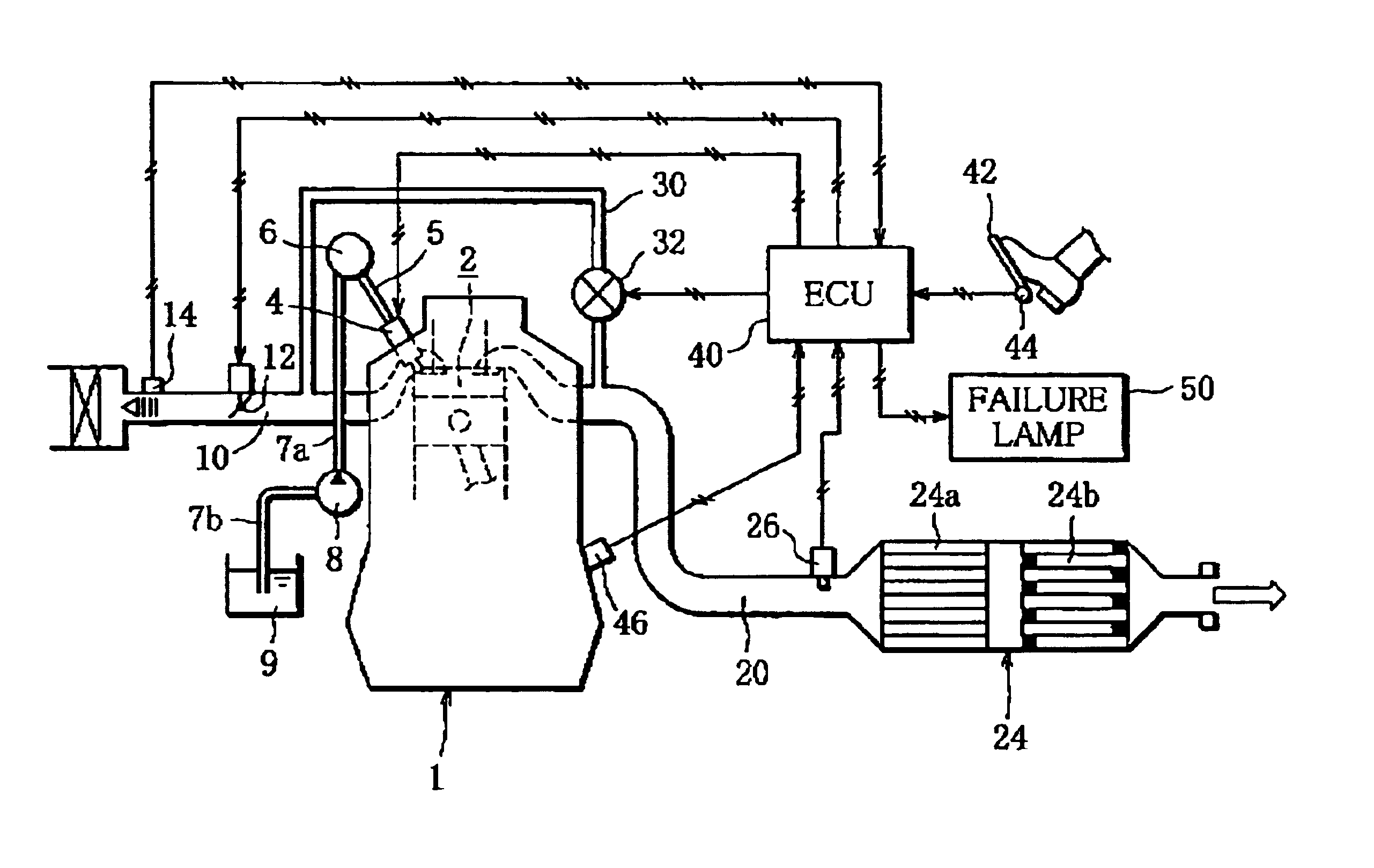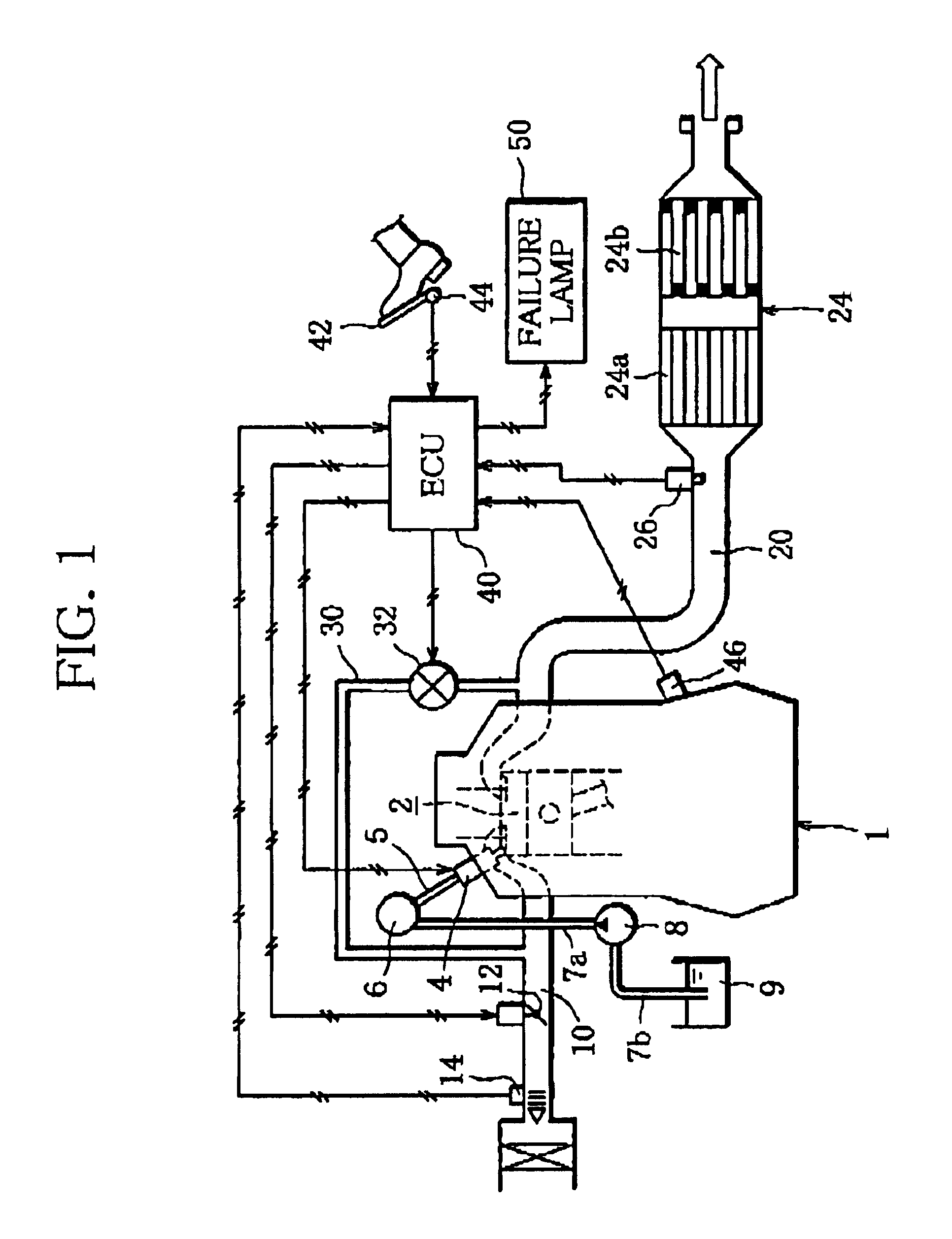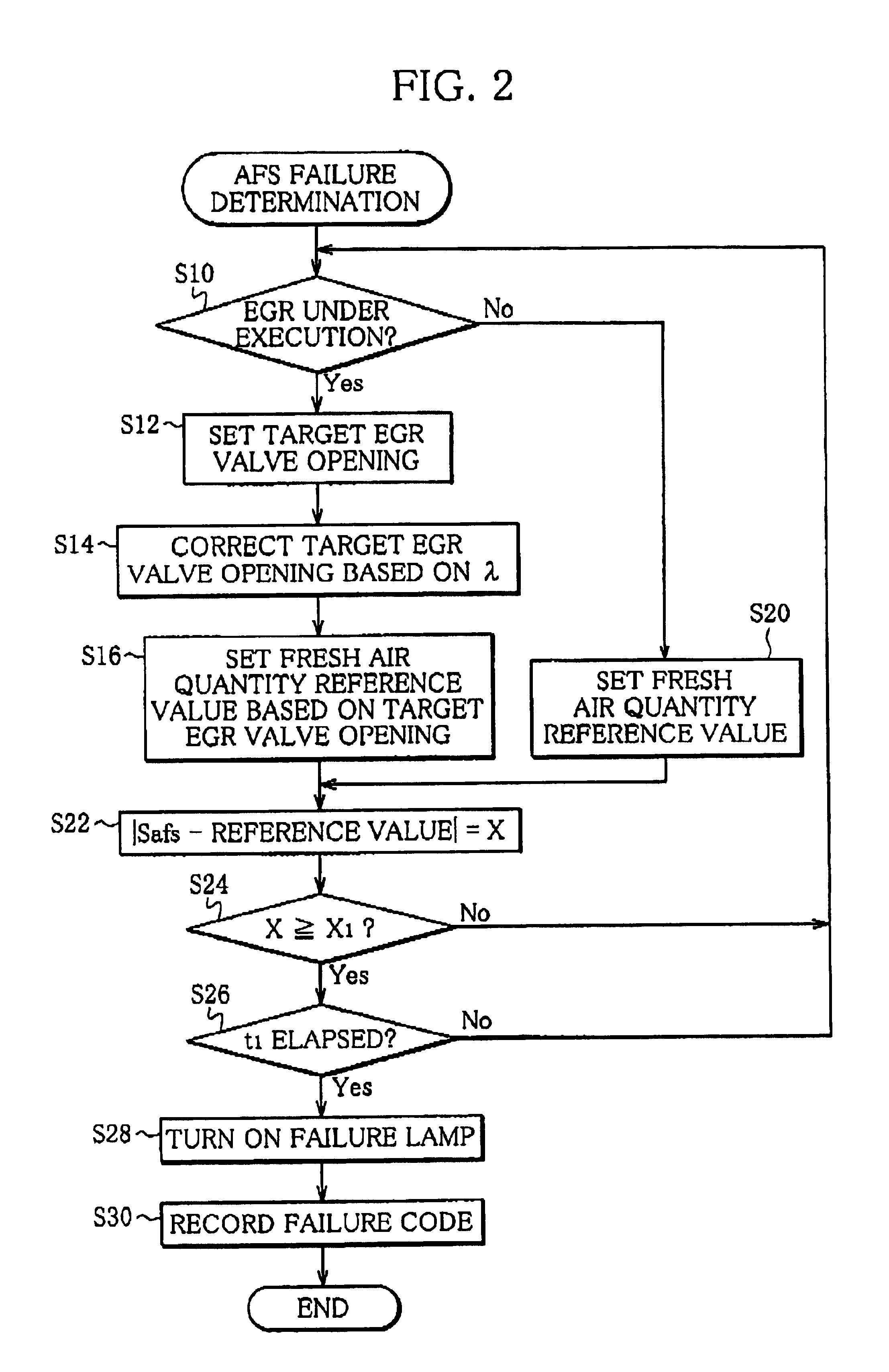Failure detection apparatus for an internal combustion engine
a failure detection and internal combustion engine technology, applied in the direction of machines/engines, vehicle components, process and machine control, etc., can solve the problems of inability to determine the failure of the air flow sensor with accuracy, the failure of the exhaust gas characteristics may possibly be deteriorated, and the inability to suspend diagnosis, etc., to achieve reliable detection of abnormalities
- Summary
- Abstract
- Description
- Claims
- Application Information
AI Technical Summary
Benefits of technology
Problems solved by technology
Method used
Image
Examples
first embodiment
A first embodiment will be explained first.
FIG. 2 is a flowchart illustrating a control routine for air flow sensor (AFS) failure determination, executed in the failure detection apparatus according to the first embodiment of the present invention. The control routine will be described with reference to the flowchart.
First, in Step S10, it is determined whether or not the EGR is under execution, that is, whether or not the EGR valve 32 is opened to introduce the EGR gas into the intake system. The EGR gas is introduced depending, for example, on the engine speed Ne and the fuel injection quantity Qf, and accordingly, it is determined in this step whether or not the engine speed Ne and the fuel injection quantity Qf satisfy conditions for introducing the EGR gas, for example. If the decision in this step is affirmative (Yes) and thus the EGR is under execution, the flow proceeds to Step S12.
In Step S12, a target EGR valve opening is set. As mentioned above, since the EGR gas is intro...
second embodiment
A second embodiment will be now described.
FIG. 3 is a flowchart illustrating a control routine for air flow sensor (AFS) failure determination, executed in the failure detection apparatus according to the second embodiment of the present invention. In the following description of the flowchart, only the differences between the first and second embodiments will be explained.
In the second embodiment, after the target EGR valve opening is set in Step S12, the fresh air quantity reference value is set immediately thereafter based on the target EGR valve opening in Step S16, without correcting the target EGR valve opening, unlike the first embodiment.
Then, in Step S17, it is determined whether or not the actual excess air ratio λ detected by the λ sensor 26 is equal to the target value λ1 (λ=λ1). In other words, it is determined whether or not a difference between the target value λ1 and the actual excess air ratio λ has been caused due to an opening difference between the actual opening...
third embodiment
A third embodiment will be now described.
FIG. 4 is a flowchart illustrating a control routine for air flow sensor (AFS) failure determination, executed in the failure detection apparatus according to the third embodiment of the present invention. In the following description of the flowchart, only the differences between the third embodiment and the first or second embodiment will be explained.
In the third embodiment, after the target EGR valve opening is set in Step S12, the fresh air quantity reference value is set immediately thereafter based on the target EGR valve opening in Step S16, like the second embodiment.
Then, in Step S17, it is determined whether or not the actual excess air ratio λ detected by the λ sensor 26 is equal to the target value λ1 (λ=λ1), as in the second embodiment.
If the decision in Step S17 is affirmative (Yes) and it is judged that the actual excess air ratio λ and the target value λ1 are equal to each other, it can be concluded that the target EGR valve ...
PUM
 Login to View More
Login to View More Abstract
Description
Claims
Application Information
 Login to View More
Login to View More - R&D
- Intellectual Property
- Life Sciences
- Materials
- Tech Scout
- Unparalleled Data Quality
- Higher Quality Content
- 60% Fewer Hallucinations
Browse by: Latest US Patents, China's latest patents, Technical Efficacy Thesaurus, Application Domain, Technology Topic, Popular Technical Reports.
© 2025 PatSnap. All rights reserved.Legal|Privacy policy|Modern Slavery Act Transparency Statement|Sitemap|About US| Contact US: help@patsnap.com



